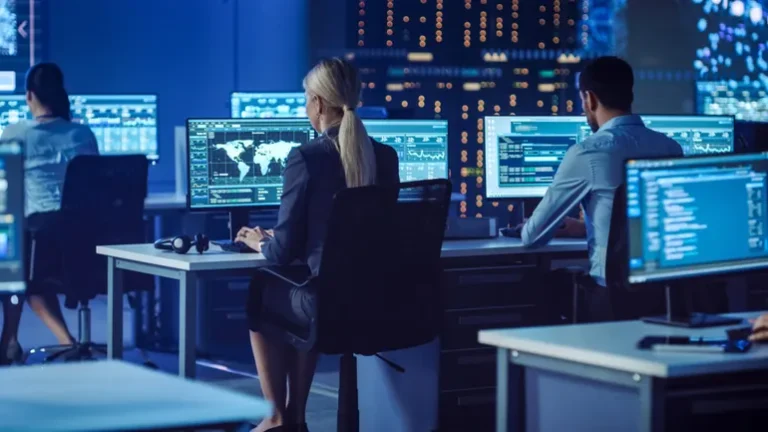Quick Takeaways
-
AI Integration: AI is set to significantly transform Security Operations Centers (SOCs) by automating repetitive tasks, but human oversight remains essential for managing cybersecurity incidents and understanding unique network configurations.
-
Task Automation Limitations: While AI can assist with complex search queries and incident summaries, reliance on AI for crucial tasks like patching legacy systems or strategic risk analysis poses risks due to its current limitations in replicating human judgment and expert knowledge.
-
Workforce Enhancement: Experts stress that AI should be viewed as a tool to enhance SOC analysts’ skills rather than a replacement; organizations risk underdeveloping staff if they become overly dependent on AI technologies.
- Need for Trust and Verification: As AI agents evolve, maintaining human oversight and ensuring their actions are auditable is crucial, with trust forming the foundation of effective AI integration in cybersecurity.
Embracing AI in Security Operations Centers
Artificial intelligence (AI) is transforming security operations centers (SOCs). Experts believe AI can automate repetitive tasks, enhancing efficiency. For example, AI can conduct complex searches and summarize reports. These benefits can streamline workflows, allowing human analysts to focus on critical decision-making. However, reliance on AI isn’t without risks. Experts warn that automated outputs may lack accuracy. Thus, companies must rigorously review AI-generated content. This vigilance ensures that crucial information reaches decision-makers without distortion.
Moreover, the integration of AI agents isn’t just about replacing human effort. Instead, it’s about collaboration. AI can handle high-volume alerts, reducing cognitive strain on staff. As SOCs face increasingly sophisticated cyber threats, this partnership becomes vital. The future might see AI agents capable of reasoned decision-making. Yet, even as these tech advances unfold, experts emphasize the need for human oversight. Trust and verification become central themes in this evolving landscape, ensuring AI actions align with corporate objectives.
Understanding the Limitations of AI
Despite the promise of AI, it has undeniable limitations. Human judgment plays a crucial role in processing unique security incidents. Complex, nuanced tasks remain beyond AI’s current reach. Professionals have specialized and often undocumented knowledge, referred to as “tribal knowledge.” AI struggles with contextual understanding in customized systems. Therefore, companies cannot view AI as a complete solution but rather as a tool to enhance human abilities.
Further caution is necessary when considering full automation. Not all SOC tasks are suitable for AI execution. Critical tasks like strategic risk analysis and crisis communications require human insight. Solely depending on AI risks developing a workforce that lacks essential investigative skills. For successful integration, SOCs must balance automation with human expertise. With thoughtful implementation, AI can significantly bolster SOC efficiency while maintaining the indispensable value of human oversight.
Stay Ahead with the Latest Tech Trends
Stay informed on the revolutionary breakthroughs in Quantum Computing research.
Access comprehensive resources on technology by visiting Wikipedia.
Cybersecurity-V1

